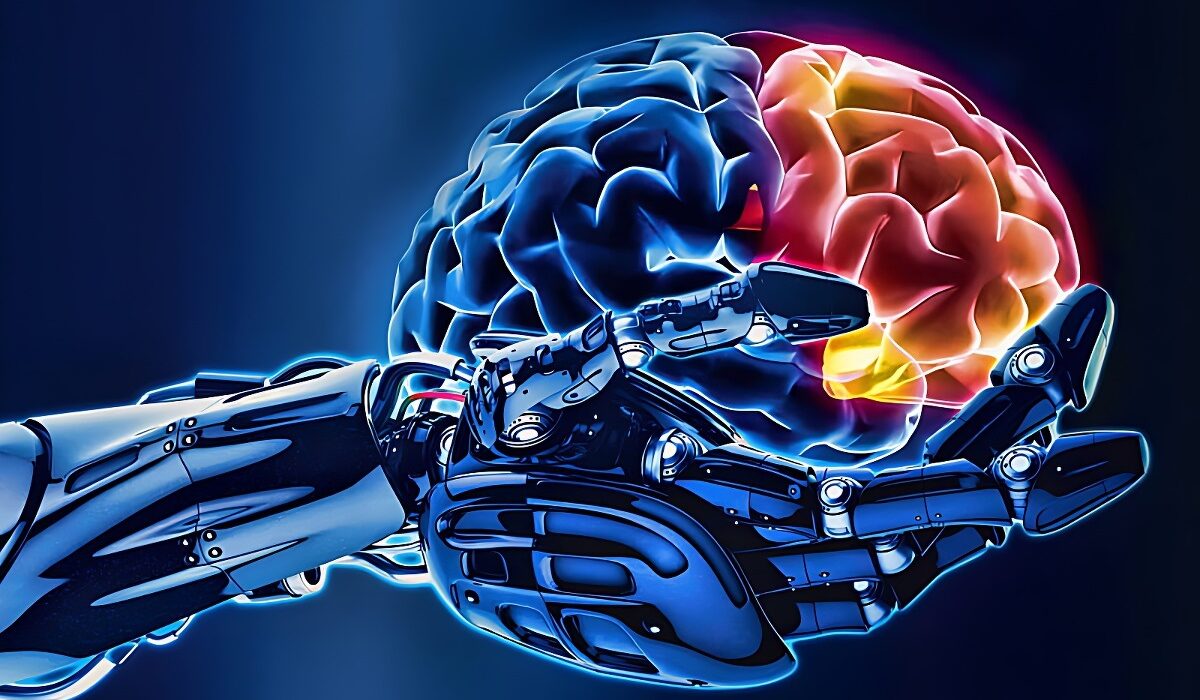What Is Artificial Intelligence?
Artificial intelligence (AI) is the simulation of human intelligence in machines programmed to think and learn like humans. It involves the development of algorithms and computer systems capable of performing tasks that would typically require human intelligence, such as visual perception, speech recognition, decision-making, and natural language processing.
What Is Digital Marketing?
Digital marketing is promoting products, services, or brands through digital channels such as search engines, websites, social media, email, and mobile apps. It involves a variety of tactics, such as search engine optimization (SEO), pay-per-click (PPC) advertising, content marketing, influencer marketing, and more.
The goal of digital marketing is to reach a target audience through digital channels and convert them into customers. The advantage of digital marketing over traditional marketing is that it allows for more targeted and measurable campaigns.
What Is Artificial Intelligence In Digital Marketing?
Artificial intelligence (AI) in digital marketing refers to the use of advanced machine learning algorithms and technologies to automate and optimize various marketing tasks. An example of AI in digital marketing is the use of Natural Language Processing (NLP) to analyze and understand customer sentiment from social media posts and online reviews. This can help companies understand how customers perceive their products or services and adjust accordingly.
Another example is the use of machine learning algorithms to optimize the targeting and delivery of online advertising. These algorithms can analyze data about a user’s browsing and purchase history to deliver more relevant and personalized ads. AI-powered chatbots and virtual assistants are also used in digital marketing to provide immediate and personalized customer service and support. Overall, the use of AI in digital marketing enables more effective and efficient marketing campaigns, by automating repetitive tasks and providing more accurate customer information and targeting.
Where Artificial Intelligence Is Currently Most Used?
Artificial intelligence (AI) is currently used in a wide variety of industries and applications. Here are 7 places where AI is most widely used:
- Technology: AI is used in products such as smartphones, PDAs, and other consumer electronics to provide more advanced features and functionality.
- Healthcare: AI is used in areas such as medical diagnosis, drug discovery, and medical imaging to improve patient care and treatment outcomes.
- Finance: AI is used in areas such as fraud detection, risk management, and investment analysis to make more accurate forecasts and improve operational efficiency.
- Transportation: AI is used in areas such as self-driving cars, traffic forecasting, and fleet management to improve safety and reduce costs.
- Manufacturing: AI is used in areas such as predictive maintenance, quality control, and supply chain management to improve efficiency and reduce downtime.
- Marketing and Sales: AI is used in areas such as customer segmentation, lead generation, and one-to-one marketing campaigns to improve ROI and customer retention.
- Retail: AI is used in areas such as product recommendations, inventory management, and price optimization to improve sales and customer satisfaction.
These are just seven points, but AI is also studied and implemented in many other areas.
How Recyclers Are Using Artificial Intelligence?
Recyclers are using artificial intelligence (AI) to improve the efficiency and accuracy of their operations. For example, AI-powered cameras and sensors can be used to classify and identify different materials, such as plastic, metal, and paper. This allows recyclers to quickly and accurately process large amounts of material, reducing the need for labor and increasing the overall efficiency of the recycling process. Additionally, AI algorithms can be used to predict and optimize recycling routes, helping to reduce costs and emissions associated with transportation. In general, the use of AI in recycling can help make the process more sustainable and economically viable.
Is The Use Of Artificial Intelligence Destroying Humanity?
There is an ongoing debate about the potential impact of artificial intelligence (AI) on humanity. Some experts have raised concerns that as AI becomes more advanced, it could have negative consequences for humanity, such as job displacement, security risks, and privacy concerns.
On the other hand, many experts believe that AI has the potential to greatly benefit humanity, improving healthcare, transportation, education, and many other areas of life. They argue that as long as AI is developed and implemented responsibly, with the right safeguards, it can greatly improve the quality of life for people around the world.
It is also important to note that AI can be a tool, it is not inherently good or bad, it depends on how it is used and developed. It is crucial that AI is developed and deployed in a transparent, ethical, and secure manner, with appropriate regulations to avoid any potential negative impacts.
Is Artificial Intelligence A Good Career Choice?
Yes, of course, artificial intelligence (AI) is a growing field with many job opportunities. It’s a good career option for people with strong technical skills, such as programming and math, and an interest in the field. However, it is important to note that the field of AI (artificial intelligence) is constantly evolving and requires people to continually learn and adapt to new technologies and advancements. Additionally, a career in AI often requires a strong understanding of computer science and machine learning, so having the right education and training is important.
Why Artificial Intelligence Is Important In The World?
Artificial intelligence (AI) has the potential to revolutionize many industries and improve people’s lives in various ways. Here are five key reasons why AI matters:
- Automation of repetitive tasks: AI can automate repetitive tasks, such as data entry, freeing up humans to focus on more complex and creative tasks.
- Improved efficiency and productivity: AI-powered systems can process large amounts of data quickly and accurately, improving efficiency and productivity.
- Better decision-making: AI can analyze data and provide insights that humans might not be able to discover, leading to better decision-making in areas like finance, healthcare, and transportation.
- Advancement of science and technology: AI can be used in various fields such as medicine, education, and energy to create new technologies.
- Enhanced Customer Service: AI-powered chatbots and virtual assistants can provide 24/7 customer service, answering common questions and helping customers resolve issues quickly.
Conclusion:
AI is transforming the digital advertising industry by enabling companies to create more personalized and effective campaigns, automate ad management and optimization, and gain valuable insights into consumer behavior.
As the field of AI continues to advance, we can expect to see even more innovative and effective ways to use AI in digital advertising firms. This is a clear indication that AI has the potential to revolutionize the digital advertising landscape, making it an essential tool for businesses looking to stay competitive in the digital age.

















